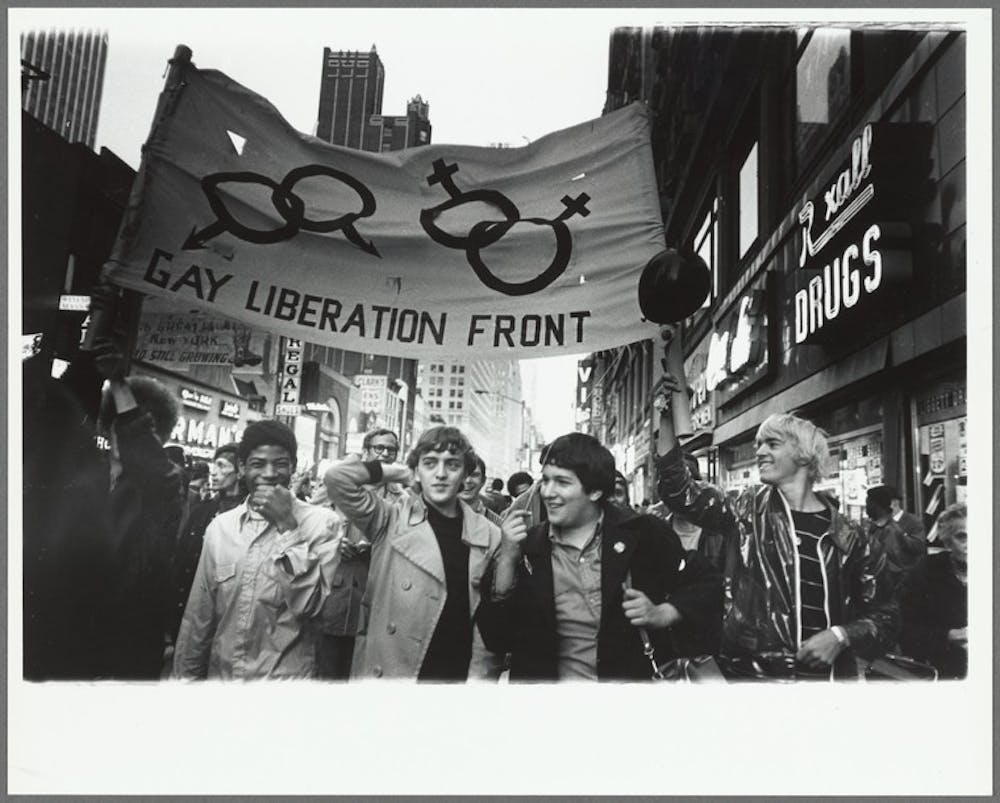October is LGBTQ History Month, and many community members have reflected on people and protests that have fought for LGBTQ+ rights and took the time to reflect on their hopes for the community’s future.
Frankie Flores, director of the University of New Mexico’s LGBTQ Resource Center, discussed the history of LGBTQ+ people who fought for the community’s rights and the obstacles they faced, specifically the freed slaves who began to perform drag in the 1800s.
Flores said the word homosexuality “was a term that was created to criminalize ... trans and queer folks. We (had) folks who were fighting against that in the 1860s and 1870s.”
Todd Lucero is a LGBTQ+ activist and community member that performs as a drag queen under the name of Katie Killjoy.
“As (long) as the LGBTQ+ community has been around, we have had to fight for every single thing we have today,” Lucero said.
Flores said some United States citizens thought people with queer identities should not work in the U.S. government due to a fear that they would sell secrets to communists.
“It sounds like an episode of “Black Mirror,” but it’s U.S. history,” Flores said.
Many LGBTQ+ members were imprisoned if they wore clothing that did not correspond with their gender assignment at birth, according to Flores.
“In the 1950s, we have the three article law, which states that at any point, an officer can detain you and you must have, on your person, three articles of clothing that correspond to your sex assignment at birth,” Flores said.
According to Flores, this law and the treatment of LGBTQ+ people ultimately led to the Cooper Do-Nuts and Compton’s Cafeteria Riots, which were several years before the Stonewall Riots.
“Our rights were given to us from a group of minorities who fought so hard at Stonewall to get us where we are today, and those names need to be remembered and recognized,” Lucero said.
The Stonewall Riots in 1969 lasted six days, and in the decades following, LGBTQ+ Pride celebrations have spread around the world, according to the Georgetown Law Library.
Get content from The Daily Lobo delivered to your inbox
“What did happen after the Stonewall Riots was the deliberate erasure of Marsha P. Johnson, Sylvia Rivera (and) Stormé DeLaverie, and it became a white, cisgender, gay (men’s) … movement for such a long time,” Flores said.
The murder of transgender activist Johnson was ruled as a suicide until it became an open murder investigation in 2012, according to Flores. They believe that by opening the investigation of her death, people are finally starting to acknowledge the violence that transgender people of color endure.
“We have to be vocal in our acknowledgment that trans women of color are under attack,” Flores said. “If we are not centering them at the forefront of our movement, we are not going to achieve true liberation.”
Lucero also discussed the importance of representing Indigenous members of the LGBTQ+ community and recognizing LGBTQ+ community members’ oppression.
“The real reason why I started doing drag was because I wanted to be a voice for other Indigenous LGBTQ+ members,” Lucero said.
Lucero said that Indigenous community members should believe that “you matter, you’re valid, how you’re feeling … and thinking is valid, and no one can tell you otherwise.”
Flores’ vision for members of the LGBTQ+ community is to not be afraid to share their identity with their families.
“My dream is to eventually not have a job”, Flores said, emphasizing that a resource center would not be necessary if people were more accepting of LGBTQ+ people.
They pointed out the importance of embracing trans and queer identities rather than ignoring them.
“I think it’s important to honor those differences and to be able to say, 'I’m glad you’re comfortable and safe enough to share that with me,’" Flores said.
Sarah Bodkin is a freelance reporter at the Daily Lobo. She can be contacted at culture@dailylobo.com or on Twitter @sarahbodkin4






